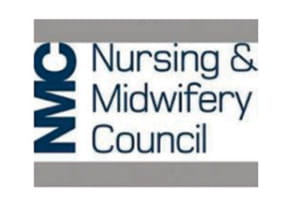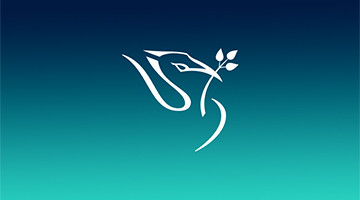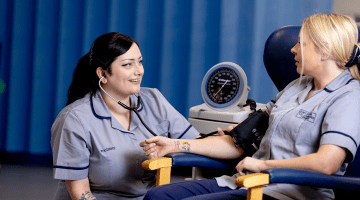Why study this course with LJMU?
- £5,000 per year NHS grant for students usually domiciled in England, Wales or Northern Ireland, plus an extra £2,000 for students with child dependents
- 95% of graduates entered employment or further study within 6 months of graduating (Unistats 2018)
- 50% work-based learning, 50% theory - a great combination!
- Examination of the Newborn (NIPE screening standards) fully embedded in the programme
- UNICEF Baby Friendly Initiative Accreditation
Please note: This course is currently not accepting new applications for September 2025 entry.
About your course
The professionally-accredited BSc (Hons) Midwifery at Liverpool John Moores University includes extensive opportunities for you to complete supervised clinical practice in one of our affiliated NHS Trusts within Merseyside and Cheshire. Plus you will gain further training using our on-campus clinical practice suites.
Our course curriculum was recently redesigned and revalidated in line with the new NMC 2020 midwifery education standards, so you can be sure you're getting the most current teaching and learning experience.
We want our graduates to be confident, competent and skilled practitioners capable of working independently and as part of a team leading practice and the profession.
LJMUs new clinical practice suites will enable you to train on-campus using hospital-standard facilities, including virtual patients and a state-of-the-art birthing simulator. The Suites show a patient's journey from a home environment through to rehabilitation. They cover a range of areas with the latest clinical equipment for simulations and clinical skills development in child nursing, adult and mental health nursing, paramedic practice, social work and midwifery.
This environment will help prepare you for the rigours and realism of actual practice, giving you the confidence to deal with real service users in the NHS, private and voluntary settings.
Course modules
What you will study on this degree
All of your modules at each level are classed as 'Core'. This means that all students on the course undertake them. You will study six modules in Levels 4 and 5, and five modules in Level 6.
Reflective Practice
Reflecting on your own and fellow student midwives' simulated clinical practice is a great way to help you develop skills, build confidence and prepare for real-world placements. To do this in the best way possible, we have invested in state-of-the-art recording equipment in each of our clinical practice suites and other teaching spaces. During specific modules, you will be asked to take part in the filming of both yourself and other students. The footage recorded is strictly confidential and must not be shared inappropriately or released into the public domain. Being professional and having respect for others must always be maintained. This strict confidentiality ensures you can be at ease and fully engage with your teaching and learning experiences.
Each bed bay is equipped with two cameras and a microphone so you can record yourself completing a procedure - say practicing cannulation skills or wound dressing - and then watch it back to see how you did, spotting good practice or any areas for improvement. It's truly a transformative way to learn and hone your skills!
Further guidance on modules
Modules are designated core or optional in accordance with professional body requirements, as applicable, and LJMU’s Academic Framework Regulations. Whilst you are required to study core modules, optional modules provide you with an element of choice. Their availability may vary and will be subject to meeting minimum student numbers.
Where changes to modules are necessary these will be communicated as appropriate.
Core modules
Midwifery Skills and Practice Level 4
20 credits
20 credits
This module will demonstrate the ability to provide continuity of midwifery carer across the whole continuum of care and in diverse settings for women and new-born infants with and without complications and additional care needs.
The Fetus and Newborn Infant
20 credits
20 credits
This module will enable you to consider and support the health and wellbeing of the foetus and newborn infant in the context of maternity care. You will learn to demonstrate an ability to evaluate and interpret evidence and information, including qualitative and quantitative data, regarding the wellbeing of the foetus and new-born infant.
Applied Sciences for Midwives
20 credits
20 credits
This module will enable you to apply knowledge of anatomy and physiology to a pregnant/postnatal woman.
The Childbirth Continuum
20 credits
20 credits
This module will develop your understanding of the foundations of midwifery practice throughout the childbirth continuum with a focus on the holistic needs of women and families.
Research and Study Skills
20 credits
20 credits
This module will develop your personal study skills and relate these to the research process. You will be introduced to the concept of evidence, the application of evidence practice, and you will develop a basic understanding of the nature and processes of research.
Introduction to the Public Health Role of the Midwife
20 credits
20 credits
This module will raise your consciousness of public health, enabling awareness of the importance of the midwife in securing better health outcomes for mothers, babies and families.
Core modules
Midwifery Skills and Practice Level 5
20 credits
20 credits
This module will enable you to provide care for the woman with additional care needs and risk factors.
The Vulnerable Newborn Infant
20 credits
20 credits
This module provides you with knowledge of the management of complications and additional care needs for the new-born infant and their family, preparing you for the midwife's role in caring for and supporting women and new-born infants requiring medical, obstetric, neonatal, mental health, social care, and other services.
Complications in the Childbirth Continuum
20 credits
20 credits
This module will equip you with the knowledge, skills and values in order to deliver safe and effective midwifery care to women with complications during the childbirth continuum.
The Context of Midwifery Practice
20 credits
20 credits
In this module you will develop a knowledge and understanding of the context surrounding midwifery practice.
Research Supporting Midwifery Practice
20 credits
20 credits
The aim of the module is to build upon your research skills and knowledge to enable you to position research within midwifery practice.
Public Health and the Vulnerable Family
20 credits
20 credits
This module will prepare you to work with vulnerable women and families in complex circumstances.
Core modules
Enhanced Care of the Newborn
20 credits
20 credits
This module will enable you to be proficient in examining the neonate to screening standards, providing holistic care to the new-born infant and the family.
The Law and Ethics
20 credits
20 credits
The aim of this module is to apply knowledge of legal and ethical principles to midwifery practice.
Autonomous and Accountable Midwifery
20 credits
20 credits
This module will enable you to develop the appropriate knowledge and critical skills that underpin the role of the midwife as an influential health care practitioner.
Applied Research Knowledge and Skills
20 credits
20 credits
This module will enable you to apply research knowledge and skills to the design of original research.
Complex Care in the Childbirth Continuum
20 credits
20 credits
The student will demonstrate knowledge and understanding that the complications and additional care needs of women, newborn infants, partners, and families during complex care in the childbirth continuum may relate to physical, psychological, social, cultural, and spiritual factors.
Midwifery Skills and Practice Level 6
20 credits
20 credits
This is a non-standard year-long module, which runs across the course of the year to enable students to develop and consolidate their midwifery skills and knowledge. A practice document MORA is attached to this module and needs to be passed (either a pass or fail) in order to complete the requirements of the programme and be eligible for entry onto the NMC register.
The student will demonstrate knowledge and understanding that the complications and additional care needs of women/ birthing people, newborn infants, partners and families may relate to physical, psychological, social, cultural, and spiritual factors.
During this module students will carry caseloads in order to build on their case loading experiences from levels 4 and 5.
Students will be required to pass all required elements of their Midwifery Ongoing Record of Achievement: NMC Proficiencies for Midwives (2019) document (MORA).
The assessment for this module is component marked with the Safe Medicate online Examination. The Safe Medicate competency will be assessed using an online software package. This needs to be passed at 100% in level 6 in order to prove competence. Each attempt comprises four opportunities to achieve 100%. This overall mark does not contribute to the overall award. This also meets the other learning outcomes such as the use of technology, digital media and ensuring safety.
Professional accreditation/links
The Nursing and Midwifery Council (NMC) works with partner organisations to set and maintain high standards of nursing and midwifery education across the UK. The Midwifery course at LJMU has been approved and is monitored by the NMC to make sure that the education and training on offer meets the NMC standards. Successful completion of this degree allows you to apply for registration on the Nursing and Midwifery Register.
This course is accredited by UNICEF as having attained Baby Friendly Initiative status. This international accreditation ensures that our students are prepared for practice to assist mothers and families giving consistent advice based on best evidence and ensures a gold standard of teaching and learning around breastfeeding and infant feeding within the curriculum.

Your Learning Experience
Excellent facilities and learning resources
We adopt an active blended learning approach, meaning you will experience a combination of face-to-face and online learning during your time at LJMU. This enables you to experience a rich and diverse learning experience and engage fully with your studies. Our approach ensures that you can easily access support from your personal tutor, either by meeting them on-campus or via a video call to suit your needs.
As a midwifery student, you will be required to complete 45 programmed weeks per year which will be allocated to 50% theory and 50% clinical practice. Each programmed week is 37.5 hours.
This means that you will have seven weeks holiday a year, and may have to attend sessions outside the normal University hours of 9am to 5pm. Blocks of academic study can be up to seven weeks depending on the modules you take. These are followed by periods of clinical practice where you will work shifts (short shifts, long shifts and night shifts) and one day a week in University.
Underpinning all aspects of the training offered is a commitment to ethical and anti-oppressive values, values and principles of the NHS Constitution and Professional Body requirements.
Work-related Learning
Clinical practice is a vital element of this degree course and accounts for half of your study time at LJMU. You will be placed within community, antenatal and postnatal wards, delivery suites, gynaecology departments, theatres, neonatal and medical areas, giving you an invaluable opportunity to learn from experienced midwives and other professionals, experience the day-to-day work pattern and practise skills you have acquired on the course.
Dedicated personal tutor, plus study skills support
You will be assigned your own personal tutor. They will give you feedback on how well you are progressing with your studies and encourage you to plan for your educational and career development.
During your clinical placements you will work alongside experienced midwives and be supervised by practice mentors, as well as having the support of clinical liaison lecturers and academic link staff. Additional support is always available within the Faculty.
Assessment varies depending on the modules you choose, but will usually include a combination of exams and coursework.
We know that all students perform differently depending on how they are assessed, which is why we use a combination of assessment methods, including:
- assignments
- seminar and case study presentations
- group assessment tasks
- e-learning
- learning packages
- unseen exams
- reflective portfolios
- clinical practice assessments
- research critiques
- critical analysis of a case scenario
You will be offered feedback at various points during the course and support will be readily available from your individual module tutors should you need advice or guidance at any time. We believe that constructive feedback is vital in helping you identify your strengths as well as the areas where you may need to put in more work.
Where you will study
Part of the City Campus, the School of Nursing and Allied Health works with a wide range of health and social care organisations to design and deliver a dynamic suite of courses. In addition to specialist clinical practice suite facilities, you will find high quality seminar rooms, IT suites and lecture theatres, plus a café and social spaces. The Schools flagship Tithebarn Building adjoins the Avril Robarts Library.


All the staff I have come across are friendly and approachable. I feel reassured that someone is there for me should I require extra support.
Career paths
You will enjoy excellent career opportunities after graduation with a BSc (Hons) in Midwifery.
By the time you graduate, you will be a confident, competent and skilled midwife who is comfortable working independently with diverse cultural and social groups and will be able to deliver the highest quality care to women and their families.
Most of our graduates take up employment within the NHS and private sector. Alternatively, you may choose to work solely as a clinician or take up a career in management, research or education.
Student Futures - Careers, Employability and Enterprise Service
A wide range of opportunities and support is available to you, within and beyond your course, to ensure our students experience a transformation in their career trajectory. Every undergraduate curriculum includes Future Focus during Level 4, an e-learning resource and workshop designed to help you to develop your talents, passion and purpose.
Every student has access to Careers Zone 24/7, LJMU's suite of online Apps, resources and jobs board via the LJMU Student Futures website.
Tuition fees and funding
- Full-time per year:
- £9,535
The University reserves the right to increase tuition fees in accordance with any changes to the maximum allowable fees set by the UK Parliament. In the event of such a change, any fee increase will be subject to a maximum cap of 10% of the total course cost as originally stated at the time of your offer.
The fees quoted above cover registration, tuition, supervision, assessment and examinations as well as:
- library membership with access to printed, multimedia and digital resources
- access to programme-appropriate software
- library and student IT support
- free on-campus wifi via eduroam
Additional costs
Although not all of the following are compulsory/relevant, you should keep in mind the costs of:
- accommodation and living expenditure
- books (should you wish to have your own copies)
- printing, photocopying and stationery
- PC/laptop (should you prefer to purchase your own for independent study and online learning activities)
- mobile phone/tablet (to access online services)
- field trips (travel and activity costs)
- placements (travel expenses and living costs)
- student visas (international students only)
- study abroad opportunities (travel costs, accommodation, visas and immunisations)
- academic conferences (travel costs)
- professional-body membership
- graduation (gown hire etc)
Funding
There are many ways to fund study for home and international students. From loans to International Scholarships and subject-specific funding, you'll find all of the information you need on our specialist funding pages.
- Full-time per year:
- £18,250
International Scholarships and payment plans
Liverpool John Moores University is committed to supporting international students by providing a range of scholarships and flexible payment plans to help students manage their tuition fees.
Scholarships
LJMU provides a variety of scholarships to support international students. Scholarships are available to self-funded students who have accepted their offer and met all the conditions outlined in their offer letter. Students must also demonstrate that they can cover living costs, travel, and other expenses associated to studying at the university. Postgraduate scholarships include tuition fee reductions and are often offered in partnership with external funding organisations.
All self-funded international students are eligible for an automatic scholarship worth up to £4,000. For more details and to view our full list of scholarships, visit the international scholarship webpages.
Deposit
All students must pay a £5,000 deposit before they can receive their CAS letter.
For more information view our deposit page.
Tuition Fee Payment Plan
After paying their £5,000 deposit, students have the option to pay their fees in full or in three equal instalments minus any internal scholarships and discounts. There are two payment options available for international students. You can either pay your tuition fees in full before enrolment or opt for a payment plan. With the payment plan, you can pay your fees in three instalments after making your £5,000 deposit. The first instalment is due before enrolment.
All payments should be made through Flywire. Full details can be found in the How to Pay Guide.
Early Bird Tuition Fee discount
We are excited to introduce a £500 Early Payment Discount to all self-funded international students. Eligible self-funded students who pay their fees by the required deadlines will get a discount which will be automatically deducted from the 1st year of tuition fees.
To see the required deadlines please visit the webpage
Placement travel and uniform costs
- Travel costs to placements and parking if using a car whilst on placement. However, you may be able to claim reimbursement of travel costs through the Learning Support Fund provided by the NHS Business Services Authority (NHSBSA).
- Students who would like to buy extra uniform items, further to their standard uniform which is included in the course fees, have the option to do so.
Entry requirements
Please choose your qualifications below to view requirements
Grades/points required from qualifications: ABB-AAB (128-136)
Work out how many UCAS points your qualifications are worth by visiting the UCAS Tariff Calculator.
Qualification requirements
GCSEs and equivalents
Applicants must have obtained grade 4 or grade C or above in English Language and Mathematics GCSE or Welsh GCSE in Maths / The Welsh GCSE in Maths Numeracy. We will also accept the following alternative qualifications:
- Irish Leaving Certificate English and maths grade 04 to 01 (ordinary level)
- Level 2 English and maths completed as part of an Access course
- The Faculty of Health will accept Edge Hill University's equivalence tests in English and mathematics as an alternative to the GCSE requirements. For further information, please go to Edgehill Equivalency Tests or email Edgehill. These must be passed prior to applying to the University
- Key Skills Level 2 English and Maths
- NVQ Level 2 Functional Skills in English and Maths
- Northern Ireland or Wales Essential Skills Level 2 in Communication or Application of Number
A levels
ABB-AAB
Minimum Number of A Levels: 3
Maximum AS UCAS Points: Not accepted
BTECs
Extended Diploma: DDM
Access awards
Acceptable on its own and combined with other qualifications
Pass overall with a minimum of 128 points
International Baccalaureate
Acceptable on its own and combined with other qualifications. Three IB Higher Level certificates required, including a relevant subject
Irish awards
Acceptable on its own and combined with other qualifications. Must include a relevant subject at Higher Level.
FETAC acceptability: The following modules must be achieved at Distinction: Anatomy and Physiology, Human Growth and Development, Introduction to Nursing
T levels
Acceptable on its own and combined with other qualifications.
You need to obtain the required UCAS points from a related subject area.
Alternative qualifications considered
Applicants with a Degree or Diploma that are not health or science related must have an A Level Science at grade C or above.
We will accept the new Cache Level 3 Extended Diploma in Health and Social Care grade A or above, or in combination with other relevant qualifications. Applicants must have studied in the last 3 years.
Accepted as an alternative to IELTS is Occupational English Test (OET):
We'll accept an OET examination certificate that confirms you achieved:
- at least a grade C+ in the writing section
- at least a grade B in the reading, listening and speaking sections
Due to the volume of applications, amendments will not be accepted once an application has been submitted, therefore applicants are advised to make sure each section is completed correctly prior to submission.
Additional requirements
-
Interview required
Yes
Admissions Process
- All applicants will be sent an assessment by email with full instructions and a deadline for submission.
- Once assessments are returned applications will be assessed, and qualifications will be checked to see that they meet or are predicted to meet our entry requirements. We would expect applicants’ personal statements to demonstrate preparation for and commitment to studying this course and to becoming a Midwife.
- Shortlisted applicants will be invited to an interview and offers will be made to successful applicants.
- All applicants must provide a satisfactory reference with their application, failure to do so will result in a rejected application.
Further information
-
DBS, Occupational Health requirements
Is a DBS check required?
Yes
-
Reduced offer scheme
As part of LJMU’s commitment to widening access we offer eligible students entry to their chosen course at a reduced threshold between 8 and 16 UCAS points. This applies if you are a student who has experience of living in local authority care or if you have participated in one of LJMU’s sustained outreach programmes such as a summer university. Please contact course enquiries for further details.
-
Deferred Entry Allowed
No
International requirements
IELTS
IELTS score of 7.0 overall, with minimum of 7.0 in each of the 4 components
Further information
-
DBS, Occupational Health requirements
Is a DBS check required?
Yes
-
Deferred Entry Allowed
No
Please Note: All international qualifications are subject to a qualification equivalency check.
How to apply
Securing your place at LJMU
UCAS is the official application route for our full-time undergraduate courses. Further information on the UCAS application process can be found here https://www.ljmu.ac.uk/study/undergraduate-students/how-to-apply.
Please note: This course is currently not accepting new applications for September 2025 entry.
Please be aware that demand for LJMU's Midwifery degree is extremely high. Our recruitment quota is capped at 40 places. As we usually receive around 1,300 applications, we strongly advise you to ensure your application is carefully tailored to clearly address all of the entry and shortlisting criteria.
All applicants are initially sent our admissions assessment, the whole application will then be reviewed by the admissions team, including qualifications, references and personal statement. As well as reviewing the admissions assessment performance we may also look for some healthcare experience. We are looking for evidence of a commitment to midwifery and individualised woman centred care from your application.
Midwifery involves working individually and as a member of a team with an aim to provide support and education (including public health) to women/birthing persons and their families during the childbirth continuum.
Applicants need to demonstrate knowledge of the Nursing and Midwifery Council (NMC). Above all, we want students who are committed to providing high quality evidence-based care, holistic practices and support for women/birthing persons, with a strong desire to continually develop and improve their skills as a midwife and clinical practitioner.
You must demonstrate an understanding of autonomous midwifery practice, excellent communication and time management skills, the ability to work flexible shift patterns and to combine academic study with clinical practice and a strong commitment to succeed.
Please note: due to the volume of applications, amendments will not be accepted once an application has been submitted. Applicants are advised to make sure each section is completed correctly prior to submission.
Other information
Satisfactory Medical Clearance/Examination. We will contact you directly to undertake this. Satisfactory DBS check (Disclosure and Barring Service - formerly CRB.) We will contact you directly to undertake this and further information can be found at https://www.gov.uk/disclosure-barring-service-check.
In addition, applicants will follow Faculty procedures for declaring any convictions after interview.
Your university life
From accommodation and academic support to clubs and societies. Find out what LJMU has to offer.
Related Links
Talk to our students
Connect with a current LJMU student for advice and guidance on university life, courses and more.
See what our students are saying
At LJMU we want you to know you're making the right choice by studying with us. You can see what our students are saying about their experience with us through their reviews on the following websites:
Related Links
News and views
Browse through the latest news and stories from the university








The university reserves the right to withdraw or make alterations to a course and facilities if necessary; this may be because such changes are deemed to be beneficial to students, are minor in nature and unlikely to impact negatively upon students or become necessary due to circumstances beyond the control of the university. Where this does happen, the university operates a policy of consultation, advice and support to all enrolled students affected by the proposed change to their course or module.
Further information on the terms and conditions of any offer made, our admissions policy and the complaints and appeals process.

















